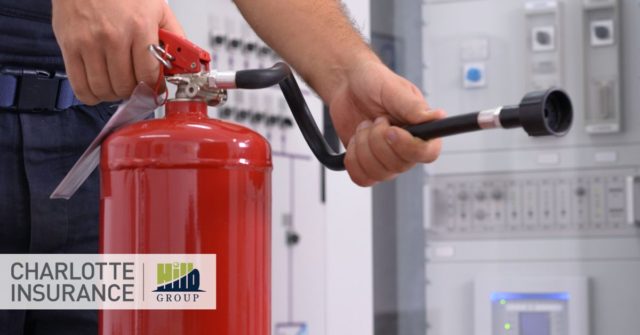When you think about your RV, you probably imagine open roads, camping fun, and seeing all of the amazing sights across the United States. You probably aren’t thinking about fires and fire safety.
To maximize your fun and have a safe RV experience, you need to be very concerned with fire safety. Thousands of RV fires occur every year and many are preventable.
Keep yourself, your friends and family, and your RV safe with these tips.
General RV Fire Safety Tips
Whether your RV is parked at a campsite or you’re driving down the highway, make sure you follow these general safety tips to prevent a fire in your RV.
- Install enough smoke alarms for your RV. If your vehicle is 21 feet or smaller, you only need one, in the kitchen. In larger RVs, you need at least two and one must be in the kitchen.
- Test your smoke alarms regularly and replace the batteries a minimum of every six months.
- Keep three fire extinguishers in your RV: one in the kitchen, one in the bedroom, and one in an easily accessible compartment outside your RV.
- Have your RV regularly maintained. Mechanical and electrical failures can lead to fires. Brake problems can cause the tire or brake fluid to ignite while you’re on the road. Having your RV serviced can often catch these problems early.
- Check all 12-volt electrical connections as most RV fires are caused by a 12-volt short.
- Create an escape plan with two escape routes for your RV. Practice it with everyone. Make sure everyone can open emergency exits, front doors, and hatches on their own.
- Install a fire protection system that can detect and put out a fire before it becomes a severe problem. Look for something like the THIA from PROTENG®.
Fire Safety Tips While Driving Your RV
The biggest risk of fire often occurs when you’re camping, but there are potential hazards while driving, too.
- Make sure to turn off propane gas connections and appliances while driving.
- Monitor gauges while driving. If something seems off, pull over and check it out.
- Take a quick look at your tires any time you park. You won’t get a normal pressure reading on hot tires so use your eyes to check for any problems.
- Watch where you park and avoid areas with dry grass. A hot exhaust or catalytic converter can start a fire under your RV.
Fire Safety Tips While Camping or Parked
Using your RV while it’s parked or camping with an RV presents the greatest risk of fire for most people. Follow these safety tips to prevent fires from starting in the first place.
- Never leave cooking unattended, either in your kitchen or over a campfire.
- Unplug appliances when you need to leave your RV unattended.
- Safely connect the electrical for your RV based on the manufacturer’s requirements and recommendations. Avoid using power strips or extensions. Plugging too many things into your RV can overload the electricity.
- Clean up leaks and spills near your campsite and RV as they can become hazardous later.
- Travel with fresh, dry charcoal as old charcoal can spontaneously combust.
- Use your generator well away from your RV.
- Only use electrical heaters with built-in automatic shut-off switches. Using a fuel burning heater can cause a fire or lead to carbon monoxide exposure.
- Keep combustible fuel and supplies away from your RV, and keep campsite fire items far away, as well.
Even when you follow every safety tip and take all precautions, accidents happen. After a fire, your RV insurance policy can help you rebuild and get back on the road.
Contact Charlotte Insurance today for a free estimate on a new RV insurance policy!

